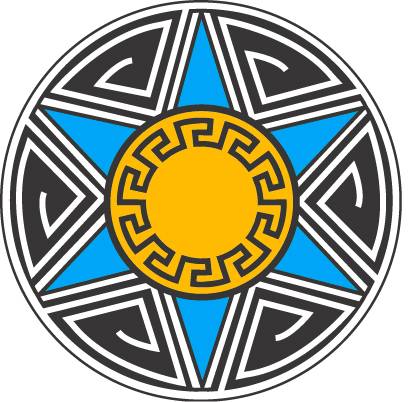CSSW History
The Center for the Study of the Southwest at Texas State University engages faculty and students in the richness and diversity of Texas, the Southwestern United States, and Northern Mexico via curriculum development, public outreach, and research that give focus to intercultural studies through examining the region's people, institutions, history, art, and physical and cultural ecology.
Former University President Jerome H. Supple established the Center for the Study of the Southwest in February 1990. “Through the Center,” President Supple said, “we will collect and examine the forms of art and of thought which have over the centuries shaped this region of the world.... My hope is that the Center will ultimately receive international recognition for its understanding, promotion, and celebration of this unique culture we call the Southwest.”
Under the leadership of its founding director, Dr. Mark Busby, the Center established an undergraduate minor in Southwestern Studies and created introductory classes in Southwestern Studies at both the undergraduate and graduate levels. Aside from the two introductory courses in Southwestern Studies, the undergraduate minor includes courses from a broad variety of disciplines, including Agriculture, Anthropology, Art History, Biology, Education, English, Geography, History, Modern Languages, Political Science, Sociology, and Social Work. The Center currently offers one competitive scholarship to its minors.
In 2001, the National Endowment for the Humanities selected the Center to serve as the Southwest Regional Humanities Center, part of an initiative to establish such centers around the country. Although that initiative came to an end, funding from that program continues to support the Center’s humanities activities. The Center collaborates with Humanities Texas, the state affiliate of the National Endowment for the Humanities.
As part of a National Endowment for the Humanities Challenge Grant, the Houston Endowment funded the Jesse H. and Mary Gibbs Jones Professor of Southwestern Studies. The Jones Professor of Southwestern Studies team-teaches the Southwestern Studies courses with the faculty of the Center for the Study of the Southwest, helps organize and present symposia, and assists the Center with other regional projects related to the professor's discipline.
From its inception, the Center’s activities have promoted a greater understanding of Texas and the region through publications and public programming. Dr. Busby brought to the Center two regional journals, Southwestern American Literature and Texas Books in Review, that have served to disseminate scholarly understanding of the region and its writers to academic and general audiences. Since its founding, the Center has collaborated closely with the Wittliff Collections to bring regional literary figures to campus and to mount exhibits on Southwestern history, culture, and social issues. The Center has also sponsored conferences and symposia, including National Endowment for the Humanities summer institutes for college teachers.
In 2012, after twenty-one years as director, Dr. Busby stepped down to assume teaching and creative interests in the department of English at Texas State. He was succeeded by Dr. Jesús F. de la Teja, Regents’ and University Distinguished Professor of History as the new Jerome H. and Catherine E. Supple Professor of Southwestern Studies and director of the Center. A former chairman of the history department at Texas State, Dr. De la Teja has also served as president of the Texas State Historical Association and in 2007 was appointed by Gov. Rick Perry as the inaugural State Historian of Texas.
In 2017, Dr. John Mckiernan-Gonzalez started working as director of the Center. His work focuses on the history of the Southwest, Latina/os, racial formations and the border as well as the history of medicine. Dr. Mckiernan-Gonzalez has also collaborated with a variety of museums, school districts and community organizations on a number of public history projects, ranging from an exhibit on 1848 at the National Museum of American History to immigrant themed projects involving soccer, AIDS, and youth, as well as construction work.

Center for the Study of the Southwest
